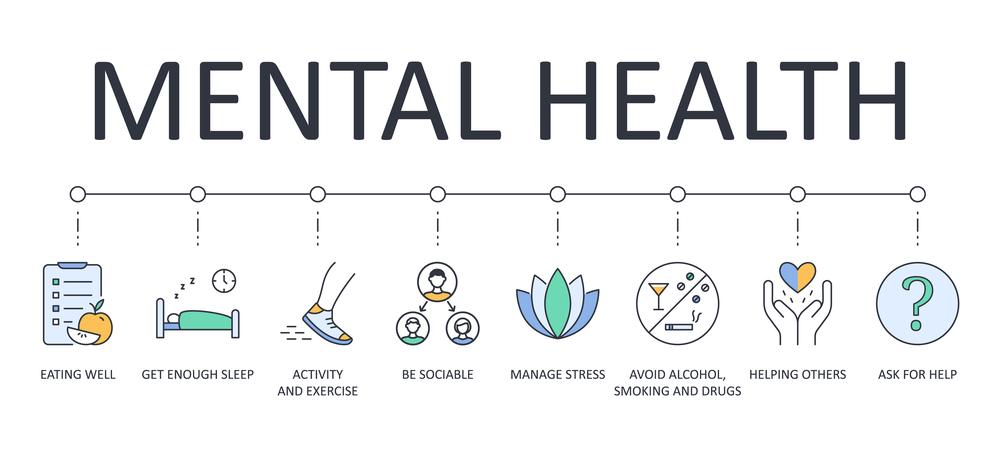As a BetterHelp affiliate, we receive compensation from BetterHelp if you purchase products or services through the links provided
This post was developed via a partnership with BetterHelp.
Stress management is arguably one of the most essential skills a person can master throughout their lifetime. Chronic stress is associated with many mental and physical health consequences, making its management necessary to maintain good overall well-being. While there are many sources of stress a person may experience, there are also many ways to reduce the impact of stressful circumstances. I’ve found that integrating plenty of walks throughout my day, with my Fitbit as a faithful companion, plays a crucial role in keeping my stress levels in check. This article will examine how nature and exercise work together to bolster resilience against stress and lower stress levels overall.
Nature’s effect on stress
Many studies suggest that green spaces and natural environments can reduce stress substantially. Mere exposure to nature’s beauty is often enough to significantly reduce stress immediately and is likely to have long-term effects if exposure is repeated. Furthermore, evidence suggests that almost any natural environment can produce substantial stress relief, whether a forest trail, open prairie, beach, or city park.
It is important to note that the evidence supports the benefit of exposure to nature, even without any other intervention to reduce stress. Sitting on a park bench and watching wildlife pass by or visiting a wildflower garden can lower stress levels. Mere exposure to nature is associated with improved cognitive function and sleep quality. It is also associated with lower levels of depression, anxiety, chronic disease, as well as lower blood pressure.
Stress and exercise
 Regular exercise is one of the most well-evidenced interventions to reduce stress. Exercise has both long and short-term benefits. Short-term benefits, like an elevated mood, typically appear immediately after a workout and might last several hours. Long-term benefits typically appear when exercise routines are sustained over time. Long-term effects are strongly associated with stress resilience and lower levels of chronic stress.
Regular exercise is one of the most well-evidenced interventions to reduce stress. Exercise has both long and short-term benefits. Short-term benefits, like an elevated mood, typically appear immediately after a workout and might last several hours. Long-term benefits typically appear when exercise routines are sustained over time. Long-term effects are strongly associated with stress resilience and lower levels of chronic stress.
In addition to improving mood and reducing stress, exercise also has benefits to physical health, such as improved cardiovascular function, weight loss, muscle mass, and flexibility. While many people are aware of the physical benefits of exercise, fewer know about the significant benefits of exercise for mental well-being, especially stress. Despite a lack of recognition in popular culture, scientific evidence firmly supports the essential role of exercise in basic self-care, an important part of stress management.
Nature and exercise together
The evidence supporting the benefits of a regular exercise routine and time spent in nature is robust and substantial. Researchers have begun investigating how well those two interventions work together, with positive results. Key findings from the scientific literature suggest that a regular exercise routine in green spaces and natural environments is likely more effective at bolstering overall well-being than either intervention alone. The evidence further suggests that moderate-intensity exercise likely has a more beneficial impact on mental health than high-intensity exercise.
The preliminary research results suggest that moderate-intensity exercise in nature is likely to provide the greatest benefits to mental health. Because of this, someone who wants to bolster their physical and mental well-being may want to consider a simple nature walk as a good starting point. Many people swear by the benefits of a stroll through a green space, and their claims are supported by contemporary research.
Nature walks alone won’t be enough for a complete stress management program, but they could form the foundations of a robust plan to manage life’s stressors. Many people overlook simple solutions to stress and anxiety, but it’s worthwhile to examine whether basic self-care, like walks in nature, might be something that could help.
Other self-care
 Two other areas of self-care are commonly considered essential alongside exercise: diet and sleep. A healthy, balanced diet is important for both mental and physical health, and an inconsistent diet or one that is not nutritious may raise stress levels. Sleep is also paramount. Poor sleep quality is associated with a substantial increase in stress levels, which can further compound sleep difficulties, creating a cycle wherein a person finds it difficult to manage their stress due to sleep disturbances alone.
Two other areas of self-care are commonly considered essential alongside exercise: diet and sleep. A healthy, balanced diet is important for both mental and physical health, and an inconsistent diet or one that is not nutritious may raise stress levels. Sleep is also paramount. Poor sleep quality is associated with a substantial increase in stress levels, which can further compound sleep difficulties, creating a cycle wherein a person finds it difficult to manage their stress due to sleep disturbances alone.
You might also want to try contacting others for assistance, especially professionals. A therapist or other mental health professional can help you establish a stress-management routine that works for you. You can even try niche therapies, like music therapy, which is associated with substantial stress reduction. For more information, check out the article “What is Music Therapy?”. Music therapy is far from the only therapeutic approach to stress, and a professional can likely help you figure out a path that works for you.
- 5 Helpful Ideas for Managing Stress During a Plumbing Emergency - April 24, 2025
- Buying a Franchise Without Losing Your Mind - April 24, 2025
- 3 Ways Wearing a Hat Can Help Lower Your Stress Levels - April 19, 2025
This site contains affiliate links to products. We will receive a commission for purchases made through these links.



